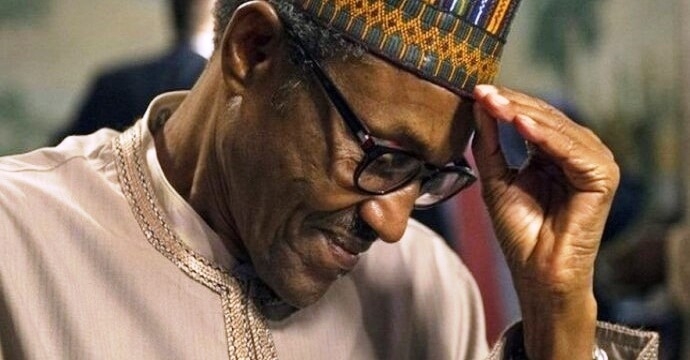 President Muhammadu Buhari[/caption]
President Muhammadu Buhari[/caption]
It is no longer news that Nigeria is in recession, but the fact is that President Muhammadu Buhari and his party, the All Progressives Congress (APC), have led the country into its worst economic recession in 29 years, the National Bureau of Statistics (NBS) has disclosed.
Buhari through policy flip flops, policy fraud and lack of technical expertise have derailed Nigeria’s economy seeing South Africa overtaking it as Africa’s biggest economy barely 15 months in office.
The NBS’ gross domestic product (GDP) report for the second quarter of 2016, indicates that Nigeria’s economy contracted by 2.06 percent to record its lowest growth rate in three decades.
Advertisement
According to the bureau, in the first quarter of 2016 the economy shrank by 0.36 percent to hit its lowest point in 25 years.
Available data by the World Bank shows that the last time Nigeria had this magnitude of economic decline was under the regime of Military President Ibrahim Babangida, when the economy recorded consecutive decline of 0.51 percent and 0.82 percent in first and second quarters of 1987.
“In the Second Quarter of 2016, the nation’s Gross Domestic Product (GDP) declined by -2.06% (year-on-year) in real terms.
“This was lower by 1.70% points from the growth rate of –0.36% recorded in the preceding quarter, and also lower by 4.41% points from the growth rate of 2.35% recorded in the corresponding quarter of 2015.
Advertisement
“Quarter on quarter, real GDP increased by 0.82% During the quarter, nominal GDP was N23,483,954.78 million (in nominal terms) at basic prices. This was 2.73% higher than the Second Quarter 2015 value of N22,859,153.01 million. This growth was lower than the rate recorded in the Second Quarter of 2015 by 2.44% points,” the NBS disclosed.
However, Special Adviser to President Buhari on Economic Matters, Adeyemi Dipeolu, said there was no cause for panic as the Federal Government was working to steady the economy.
“The just recently released data from the National Bureau of Statistics showed that Gross Domestic Product declined by -2.06% in the second quarter of 2016 on a year-on-year basis,” he said.
“A close look at the data shows that this outcome was mostly due to a sharp contraction in the oil sector due to huge losses of crude oil production as a result of vandalisation (vandalism) and sabotage.
“However, the rest of the Q2 data is beginning to tell a different story. There was growth in the agricultural and solid minerals sectors which are the areas in which the Federal Government has placed particular priority.
Advertisement
“Agriculture grew by 4.53% in the second quarter of 2016 as compared with 3.09% in the first quarter. The metal ores sector showed similar performance with coal mining, quarrying and other minerals also showing positive growth of over 2.5%. Notably also, the share of investments in GDP increased to its highest levels since 2010, growing to about 17% of Gross Domestic Product.”



